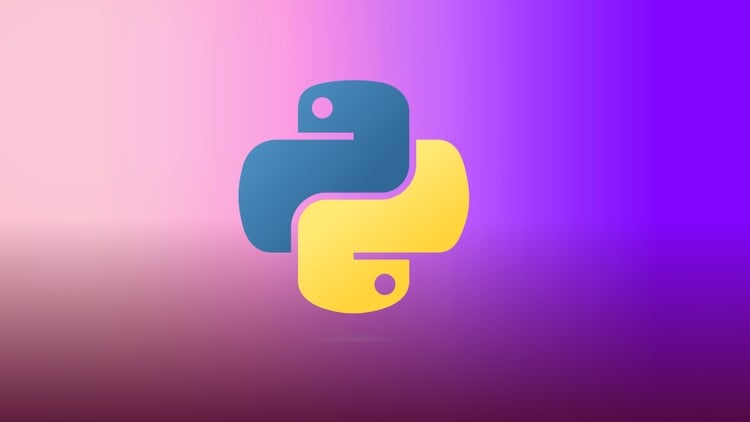
Build 8 Practical Python Tools from Scratch- Master Python Fundamental by Coding 8 Real Tools Used in Everyday Tech Task
⏱️ Length: 5.6 total hours
⭐ 4.08/5 rating
👥 5,515 students
🔄 September 2025 update
Add-On Information:
Note➛ Make sure your 𝐔𝐝𝐞𝐦𝐲 cart has only this course you're going to enroll it now, Remove all other courses from the 𝐔𝐝𝐞𝐦𝐲 cart before Enrolling!
-
Course Overview
- This practical and immersive course introduces Python programming through an intensely hands-on, project-centric approach. You will actively build eight distinct, functional software tools from scratch, ensuring every concept learned is immediately connected to a tangible, real-world application. This method dramatically enhances comprehension and retention of programming principles.
- Spanning a concise 5.6 hours, the curriculum prioritizes learning efficiency by guiding you step-by-step through developing practical utilities. This project-driven methodology not only demystifies Python fundamentals but also highlights their immediate relevance in everyday technological tasks, preparing you for direct application rather than just theoretical memorization.
- Engaging in tool construction naturally cultivates essential software development skills, including logical problem decomposition, effective algorithm design, and systematic debugging strategies. It provides a robust experiential foundation for aspiring developers and those seeking to enhance their digital literacy and automation capabilities in any field.
-
Requirements / Prerequisites
- No prior programming knowledge or experience is necessary. This course is meticulously designed for absolute beginners, introducing all foundational concepts incrementally to ensure an accessible and comfortable learning path for every participant.
- Access to a personal computer (Windows, macOS, or Linux operating system) with a stable internet connection is required. While basic computer literacy, such as navigating file systems and using web browsers, is helpful, the course includes comprehensive guidance for development environment setup.
- More importantly, participants should bring an inquisitive mind, a readiness for hands-on coding exercises, and enthusiasm for problem-solving. Consistent practice and an open mindset towards iterative learning are key to maximizing practical outcomes from this course.
-
Skills Covered / Tools Used
- Develop robust logical reasoning skills to translate conceptual problems into executable code, fostering a foundational mindset for algorithmic thinking and structural design applicable across various programming contexts and challenges.
- Gain practical proficiency in establishing and navigating a basic Python development environment, including interacting with the Python interpreter, managing project files, executing scripts, and effectively interpreting common error messages for efficient troubleshooting.
- Acquire hands-on experience implementing core programming constructs to control program flow, manage diverse data types, and organize code into reusable components. The focus is on leveraging foundational structures and external resources for functional applications, implicitly exploring principles of input/output operations and basic data persistence.
- Cultivate best practices in coding, emphasizing readability, maintainability, and efficiency. You will learn to write clean, well-commented code, understanding the importance of modular design and defensive programming for professional-grade development standards.
-
Benefits / Outcomes
- Amass a tangible portfolio of eight practical Python applications, showcasing your proven ability to conceptualize, design, and implement real-world solutions—a significant asset for demonstrating proficiency to potential employers or for personal project development.
- Achieve profound confidence in tackling new programming challenges, armed with a solid understanding of Python’s core mechanics and a systematic problem-solving methodology through code, empowering independent exploration of advanced topics.
- Establish a critical groundwork for further specialization in diverse tech fields like web development, data science, automation, or cybersecurity. Mastering Python fundamentals provides a versatile, in-demand skill set highly valued across the industry.
- Enhance vital cognitive abilities such as critical thinking, logical reasoning, and debugging. The iterative process of building and refining code sharply hones analytical acumen, offering benefits that extend far beyond just programming into various professional and personal contexts.
-
PROS
- Experiential Learning: Focuses squarely on building actual, practical tools from day one, ensuring an engaging and directly applicable learning experience that solidifies understanding more effectively than theoretical lectures alone.
- Beginner-Friendly: Meticulously designed for individuals with absolutely no prior coding experience, providing a gentle yet thorough introduction to programming concepts and Python’s expansive ecosystem.
- Real-World Relevance: Concentrates on creating tools essential for everyday tech tasks, guaranteeing that acquired skills are immediately useful and demonstrably valuable in practical, contemporary scenarios.
- Efficiency and Pacing: The 5.6-hour duration is remarkably efficient, delivering significant practical skills and foundational knowledge without a lengthy time commitment, making it an ideal choice for busy learners.
- Strong Foundational Building: Offers a robust, project-based understanding of Python fundamentals, serving as an excellent springboard for pursuing more advanced topics and specialized careers in various tech domains.
- Up-to-Date Content: The September 2025 update signifies a commitment to maintaining current course material, ensuring relevance with the latest best practices and developments within the dynamic Python landscape.
- Proven Effectiveness: A large student body (5,515) and a commendable rating (4.08/5) consistently underscore the course’s widespread appeal, effectiveness, and positive reception among a diverse learning community.
-
CONS
- Defined Scope: While exceptional for practical foundational application, the course’s compact nature means that truly advanced Python concepts, in-depth exploration of specific frameworks (e.g., web frameworks, advanced data analysis libraries), or highly specialized software engineering paradigms are outside its immediate scope. Learners aiming for deep expertise in niche areas will require further dedicated study beyond this introductory course.
Learning Tracks: English,Development,Programming Languages
Found It Free? Share It Fast!